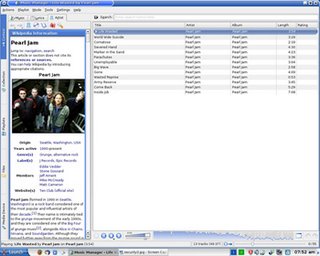What is the web hosting?
Web hosting is a service that provides individuals, organizations and users with online systems for storing information, images, video, or any content accessible via the Web. Web hosts are companies that provide space on a server they own for use by their clients as well as providing Internet connectivity, typically in a data center. Web hosts can also provide data center space and connectivity to the Internet for servers they do not own to be located in their data center.
Types of hosting
FREE HOSTING :- just about all the free web hosting available is extremely limited when compared to paid hosting. Free web hosts generally require their own ads on your site, only allow web-based uploading and editing of your site, and have very tight disk space and traffic limits. Still, most people get their start via free web hosting
IMAGE HOSTING :- hosting only a few different formats of images. This type of hosting is often free and most require registrations. Most image hosts allow hotlinking, so that you can upload images on their servers and not waste space/bandwidth on yours.
SHARED HOSTING :- one's Web site is placed on the same server as several hundred other sites. A problem with another site on the server can bring all of the sites down. Shared hosting also brings with it some restrictions regarding what exactly can be done, although these restrictions are nowhere near as restrictive as for free hosting.
RESELLER HOSTING :- designed for those who want to become Web hosts themselves. One gets a large amount of space and bandwidth that can be divided up among as many sites as the user wants to put on his account. A reseller account is placed on the same server with other reseller accounts, just like with shared hosting but there are fewer accounts.
DEDICATED HOSTING: With dedicated hosting, one gets a server of one's own. They have no restrictions, except for those designed to maintain the integrity of the Web host's network (for instance, banning sites with adult content due to the increase risk of attack by crackers and grey legal issues for the ISP). Unless a separate plan is purchased from the host, the user is also generally on his own. This can be an expensive proposition, as the purchase of the dedicated server itself is generally far more expensive compared to shared hosting.
COLOCATED HOSTING :- This involves a server the user purchases himself and installs at the host's data center. Besides unmonitored reboots, the user must pay extra for many services dedicated hosting provides by default. Colocated hosting is generally chosen by people with server administration experience and those with more significant needs than which can be satisfied by dedicated or shared hosting. This is usually the most expensive and least cost effective option if you are not colocating many servers
Linux Hosting is considered to be one of the most stable and reliable hosting platforms around. It also has the additional advantages of not having to be licenced, being flexible, and supporting most programming languages.
What is the difference between Linux hosting and Windows hosting?
If you need to support Microsoft products such as ASP, ASP.NET, MS SQL, or VBScript or IIS, then Windows hosting fits your needs.
Linux is much more common with web hosts because of its stability and because it’s free. Therefore, Linux hosting is usually cheaper than Windows.
What are PHP, ASP, Perl, MySQL, MS SQL?
PHP - PHP: Hypertext Preprocessor, server side language
ASP - Active Server Pages, server side language
Perl - server side language
Each programming language has its own benefits and uses.
MySQL and MS SQL are database systems that you can use a database to organize your data.

